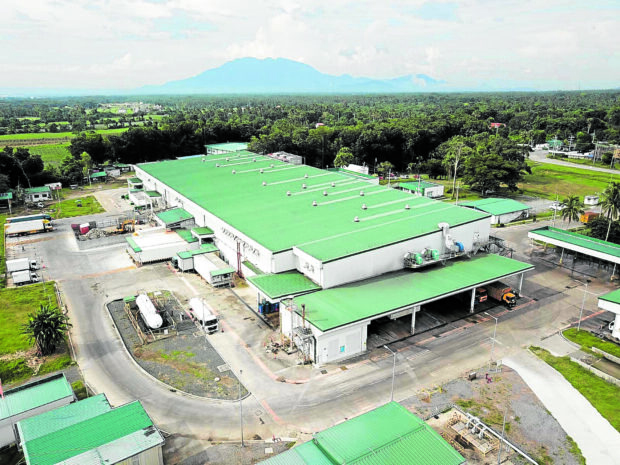MANILA, Philippines —Poultry grower Cargill Joy Poultry Meats Production Inc. (C-Joy) is all geared up to drive its business forward while doubling down on commitment to sustainability.
And C-Joy—the joint venture between Cargill Philippines, a local subsidiary of the global food and agribusiness leader, and fast food giant Jollibee Foods Corp. (JFC)—found the right person, its first female country director, Mija Darlene Cachapero, to lead the charge.
“We are aspiring to grow more with our customers and we will try to grow more with our responsibility of nourishing the Filipinos in a safe, sustainable and responsible way. So that means we will continue to espouse our values on safety and that’s deeply rooted in our people-first value as Cargill,” Cachapero tells the Inquirer in an interview.
The first order of business for Cachapero, an alumna of the Ateneo de Manila University and the Yale School of Management in Connecticut, is to adhere to the highest quality and best practices in cultivating chickens at its poultry processing facility in Batangas, to help the Philippines ensure food security.
“Customer centricity is something that we’d like to push further, so that means leveraging our insights and innovation capabilities. When I say insight, it’s more like listening to the consumers, listening to the customers. What are their needs? What kind of challenges they are trying to solve? And we cocreate solutions with them,” Cachapero says.
READ: Jollibee, Cargill venture into poultry processing
Likewise, C-Joy aims to build a “robust portfolio” through the Tip-Top Chicken brand and enter new territories across and outside the metropolis.
“At first, we were only doing some breast chicken and for you to be known as a poultry brand, you have to have the entire suite of chicken products,” she says.
From chicken nuggets to patties, to tocino and roast chicken, the company wants to bring them all to the market.
Distribution channels
C-Joy wants to expand its presence in the retail space as small grocery stores are popping up across the nation. Erstwhile heavily concentrated in Calabarzon (Cavite, Laguna, Batangas, Rizal and Quezon) because it has a processing plant in Sto. Tomas, Batangas, it is now penetrating Metro Manila and adjacent provinces, including Bulacan.
At present, Tip-Top Chicken offers around 15 poultry products, such as marinated and processed chicken, to both wholesale and retail markets.
C-Joy is working to boost its supply chain by strengthening the farms and partnerships with farmers while optimizing plant operations.
Its poultry processing facility in Batangas has a production capacity of 50 million birds annually. This plant supplies affiliate brands such as Jollibee and Mang Inasal.
“There’s still room to expand that and there are many ways to do it,” Cachapero says, without disclosing details.
Raising production capacity is in line with the projected growth of the poultry sector, pegged at 4 to 5 percent, amid the ongoing fight against bird flu.
READ: Largest ‘chickenjoy’ processing plant in PH opens
Meanwhile, C-Joy also plans to tap more farm partners in the Visayas and Mindanao. Currently, the company has 100 farm partners mainly located in Central Luzon and Calabarzon.
Despite its aggressive expansion, Cachapero says C-Joy, as a young company, intends to be more prudent on its expansion plans.Sustainability
C-Joy’s parent firm Cargill Philippines is investing $2.6 million to support various farm projects aimed at advancing the agriculture sector and protecting the environment.
Its Adopt-a-River for Tigiro River program aims to rehabilitate the river adjacent to its processing plant. For smallholder corn and coconut farmers, it also holds training on sustainable agricultural practices, improving productivity and market access.
It also covers the Agri-Sagana Project to boost the output of some 7,000 corn farming families and 10 cooperatives in Isabela and Cagayan. Another project is RISE Coco (Recovery Intervention for SEverely Affected Coconut Farming Communities of Bohol by ST Odette), which aims to replace damaged coconut trees.
“We have been already in the business of nourishing the world for 75 years and we’ve always said that our mission is to nourish the world in a safe, responsible and sustainable way,” Cachapero says.
Ensuring animal welfare by adopting best practices while protecting the environment is likewise part of its sustainability road map, she says.


